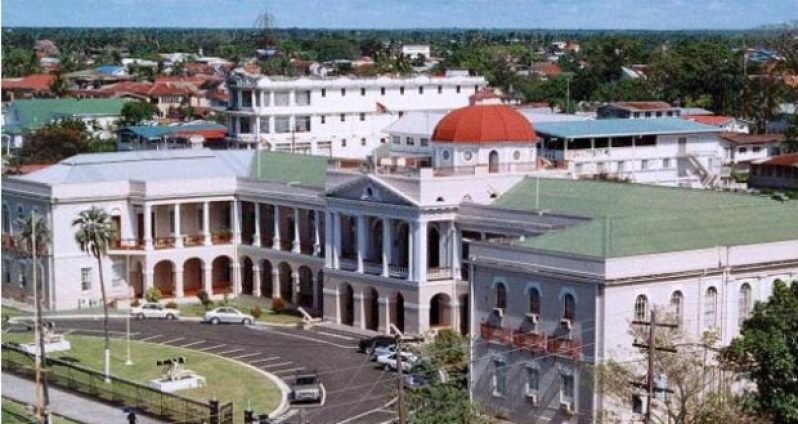THE absence of the opposition People’s Progressive Party/Civic from the National Assembly could derail the legislative agenda of the new APNU+AFC Government (A Partnership for National Unity+ Alliance For Change).The Government needs the Parliamentary participation of the Opposition PPP/C to advance establishment of the Public Procurement Commission (PPC) and to establish the AML/CFT authority. These two promises made in Government’s 100-day plan both require a two-thirds majority in the National Assembly for passage into law.
While Governance Minister Raphael Trotman, former House Speaker in the 10th Parliament, is optimistic that this situation would not arise, he disclosed that the Government would consider “extra-constitutional” measures in setting up the Public Procurement Commission.
The issue of the PPC comes against the backdrop of the Attorney General and Legal Affairs Minister Basil Williams’s recent legal review of a contract initiated between the former President Donald Ramotar Administration and the management of the New Guyana Pharmaceutical Corporation (New GPC) for some $1.2B just 10 days before the May 11 elections which it lost.
There were allegations previously levelled that based on the procurement criteria, the New GPC was allowed to maintain its position as the sole source of pharmaceutical drugs to the Government.
Even during its stint in Opposition, the new Administration had levelled challenges against the public procurement process and the way Government contracts were being disbursed. While the APNU+AFC Government hope to set up the PPC, the absence of the Opposition in Parliament could stall this.
Guyana does not now have a drug supplier because the process that created a monopolistic system in favour of the New Guyana Pharmaceutical Corporation has been challenged.
Minister Trotman is convinced that while this is true, and the New GPC provides 80% of Guyana’s drugs, the country’s stock of drugs is not at a dangerously low level. He said the previous PPP/C Administration was considering other suppliers, including one Caribbean company whose name was not disclosed to the media. Minister Trotman said that if the absence of the PPP/C in the National Assembly were to continue until the end of this year, the Government would have to consider setting up a procurement body outside of the constitutional framework. Without the support of the PPP/C, that commission would not be constitutionally recognised.
Trotman said, too, that Government would have to seek legal advice before any such steps are taken. Such advice would consider the “Doctrine of Necessity,” wherein the action of the Government must have been absolutely necessary to satisfy putting constitutional provisions aside.
Minister Trotman remains optimistic that Government would not have to go the way of “the Doctrine of Necessity,” since the Government “would like to stick to the rule of law, and we would like to adhere to the provisions of the Constitution.”
The constitutional method that Trotman is speaking of is to allow the Public Accounts Committee in the National Assembly to consider appointments for the Public Procurement Commission (PPC).
That Committee is made up of Government and Opposition parliamentarians, and is traditionally chaired by a member of the Opposition in the House.
With regard to the establishment of the Anti-Money Laundering Authority, Trotman said the Committee on Appointments in the National Assembly must consider the nomination of persons to sit on the 10-member authority.
The AML/CFT Act was approved by President David Granger in early July, and Guyana will come before the Financial Action Task Force (FATF) in October of this year to make its case of reassuring financial compliance with the international system.
Minister Trotman said the absence of the PPP/C to advance the AML/CFT Authority is only “hypothetical,” since he is confident that the party would soon make an appearance in the National Assembly. He said that in the interim, “a wise Government would present its case to FATF and indicate that there is no buy-in in terms of the Opposition’s refusal.
He said that after the FATF is made aware of the prevailing situation, the Government would be guided accordingly. “And if need be, we will have to make amendments to the law.”
By Derwayne Wills



.jpg)








